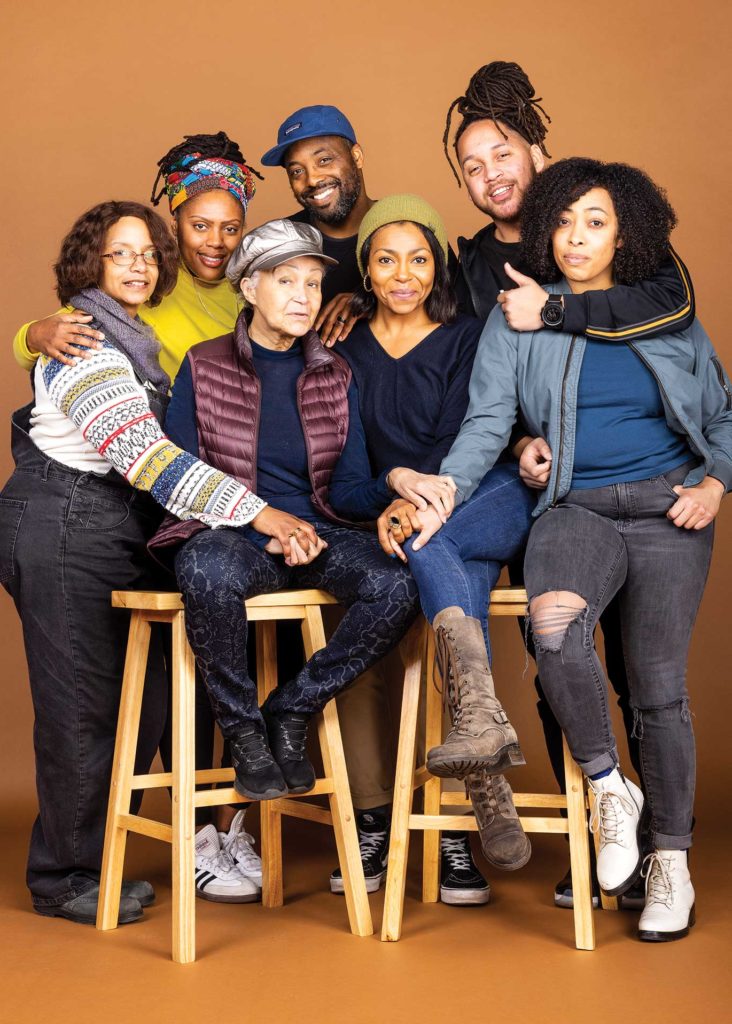‘Our Daughters, Like Pillars’ delves into Black family dynamics and sisterhood
Huntington premieres new play by Kirsten Greenidge

Female family dynamics take center stage in “Our Daughters, Like Pillars,” a new play by local Obie-award winning playwright Kirsten Greenidge opening for its world premiere on April 8 and running through May 8 at The Huntington’s Wimberly Theatre. The story follows eldest sister Lavinia, who takes her Boston-based mother and sisters on a New Hampshire vacation. She’s worked out the schedule rigidly, but all does not go according to plan.
“I wanted to write a play that took up a lot of space,” says Greenidge. “I wanted to create a play for actors who are no longer ingénues to all be onstage at once. I wanted to make sure I was creating a larger piece with a larger cast of Black actors, to be able to let them do their thing onstage, so to speak.”
Greenidge, a Boston area native, is known for writing about the Black experience in New England. She has sisters, and though the piece is not autobiographical, she draws on her experience with that relationship to inform the dynamics in “Our Daughters, Like Pillars.”
Nikkole Salter, who plays Lavinia, has deep familial roots in the New England area and notes that the setting here requires audience to think critically about Boston’s historical legacy. “I think that it’s time, as the nation is reckoning with race, that we’re also reckoning with our narrative,” she says. “Those narratives are very different based on the perspective of people in our nation. We all deserve to know the whole story, not just a cherry-picked story.” By the very fact that this production centers a Black family in New England, it incites the legacy of people of color in this region.
“Our Daughters, Like Pillars” was originally set to open in March of 2020 and will finally take the stage two years into the pandemic. When Greenidge revisited the script, she altered the story to occur during the summer of 2021 when the vaccine had just arrived and it felt like the pandemic was nearing an end. Though COVID-19 exists in the background of the play, it’s not a feature element. Still, context matters. “The COVID pandemic has heightened the need for connectivity among people, and I think has definitely shaped the way Lavinia is thinking about the future of her family,” says Salter.
This piece is a larger-scale production than Greenidge’s typical work, allowing her to flex new creative muscles in juggling a wide cast of characters with complex narratives. At the heart of those narratives, Greenidge centers Black women and their relationships to themselves and each other.
“It’s really important to me that we’re creating stories that are varied and intersectional,” says Greenidge. “I always want to make sure that I’m writing plays that are a testament to that experience.”







